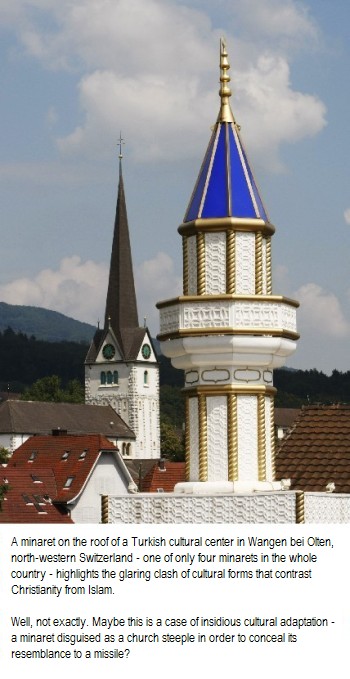Yet Mr Jumblatt has recently changed tack again. Syria, he now says, is the core of the Arab world; Lebanon is destined to be on its side. If he had once spoken ill of Bashar Assad, it was only in the heat of emotion ....
..... America piled on the pressure, slapping on sanctions in 2003, recalling its ambassador in 2005 and staging raids across Iraq’s border until as recently as last year. Israeli fighter aircraft buzzed Mr Assad’s beach house in a humiliating display of effortless aerial supremacy. The European Union, for its part, suspended talks on an association agreement in 2004, leaving Syria the only Mediterranean country without a preferential trade deal.......
For sure, Syria’s dogged refusal to kowtow has been costly. Its hurried exit from Lebanon was humiliating. Its failure so far to accommodate itself to the new establishment in Baghdad has been expensive too, with Iraq’s rulers accusing it of plotting recent deadly bombings. Israel, meanwhile, clobbered Syria’s Hizbullah ally in 2006 and its Hamas friends in Gaza earlier this year. Israel also bombed a suspected nuclear site in the Syrian desert in 2007 and recently intercepted a shipload of Iranian arms apparently bound, through Syrian ports, for Hizbullah.If Mr Assad’s hard line at home has earned grudging respect, so has his firmness in foreign relations. Rather than flipping on Iran or abandoning ties to Hizbullah or the Palestinian Islamist group, Hamas, in order to please the West, his regime has upheld “resistance” as the best way to apply pressure on Israel, while offering to negotiate with it. Frightened by the invasion of Iraq, Syria nevertheless yanked the American lion’s tail by letting insurgents slip into the fray. Such nerve, along with Syria’s generous accommodation of Iraqi refugees, improved Mr Assad’s Arab nationalist credentials just when America’s moderate Arab allies looked callow and spineless.
But Mr Assad’s tenacious immobility has proved a winning course overall, reinforcing Syria’s centrality to regional issues. As stalemate prevails, from Iraq to Palestine, Mr Assad has slowly regained many of the cards he appeared to have lost.
The case of Lebanon is instructive. Since retreating in the face of a popular uprising against its interference, Syria has clawed its way back to a position of less overt but almost as effective dominance. Exploiting Lebanon’s fractiousness, Syria pushed its allies to undermine the pro-Western coalition that won Lebanon’s general election in 2005. Though pro-Syrian parties failed to end the coalition’s parliamentary majority in a more recent election, in June, they have hamstrung its attempts to govern. Only when the pro-Western coalition, known as the March 14th alliance, frustrated in politics and outgunned on the street, quietly addressed Syria’s concerns did Mr Assad’s Lebanese allies suddenly fall into line. The price appears to be that Hizbullah will keep its private army and that March 14th will not press for the UN to implicate Syria in its investigation of Mr Hariri’s death. Moreover, with Mr Jumblatt now hinting that he may jump ship, March 14th may well sink.
Syria’s stubbornness over Israel, while letting militia allies in Lebanon and Gaza harry the Jewish state, has paid dividends too. The Israelis’ assault on Gaza and their willingness to put only partial limits on expanding Jewish settlements in the West Bank, outlined this week, have made it easier to bring Syria in from the cold. And Israel’s continuing failure to squelch Hamas or Hizbullah has left Syria with some useful chips. It hosts Hamas’s exiled leadership and still serves as a conduit for Iranian arms and money to Hizbullah. This gives Syria bargaining power in its long-standing demand for Israel to return the Golan Heights, which Israel occupied in 1967.
Israel’s prime minister, Binyamin Netanyahu, tried to provoke a reaction from Mr Assad, when visiting President Nicolas Sarkozy in France, by calling for negotiations without preconditions. Syria had no preconditions, answered Mr Assad on his own Paris visit, but rather rights that everyone recognised. Indeed, Mr Netanyahu’s predecessor, Ehud Olmert, seemed to accept that the Heights would one day have to be returned to Syria.
In the capitals of America’s Arab allies, a sense is growing that, in the light of the persistent stalemate between the Palestinians and Israel, stubbornly bloody-minded Syria has been canny all along. In the past, countries such as Saudi Arabia and Egypt have been waiting for Syria to come truckling back into the moderate fold. Now people in Damascus think the moderates may come truckling to them."




 Tareq Ramadan in L'Illuste via
Tareq Ramadan in L'Illuste via 




